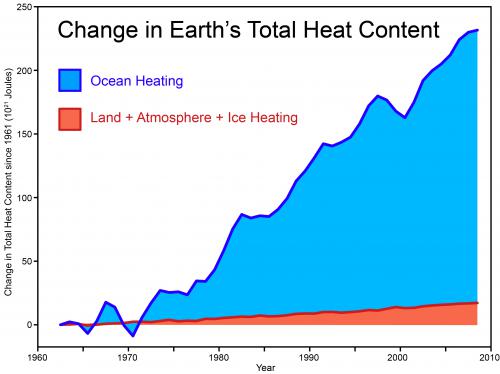The Earth continues to build up heat
Posted on 12 October 2011 by John Cook
New research has been published that finds the planet has continued to build up heat well into the 21st century. Church et al 2011 extends the analysis of Murphy 2009 which calculated the Earth's total heat content through to 2003. This new research combines measurements of ocean heat, land and atmosphere warming and ice melting to find that our climate system continued to accumulate heat through to 2008.
A high resolution version of the graph is available at the Climate Graphics resource. Many thanks to John Church and Neil White for generously sending me their total heat content data.































 Arguments
Arguments































[DB] Per your link, 0-700 meters is not the whole ocean, and is thus not considered global.
Per the third sentence of the OP above:
Emphasis added for clarity.
[DB] Perhaps it's the language barrier, but your extensive quotations lack a summary conclusion by you. You are not making any point that makes any sense.
[DB] CBD, Albatross' image links back to that furnished in a comment response by Gavin over at RealClimate.